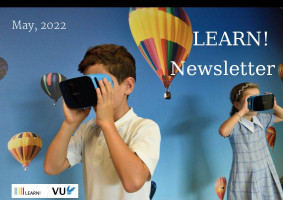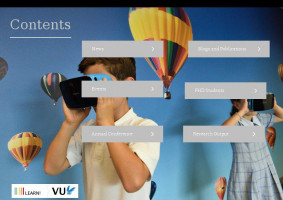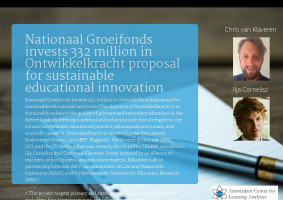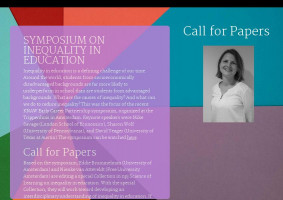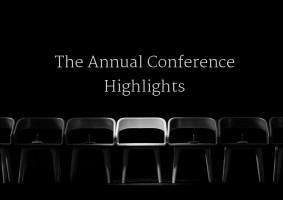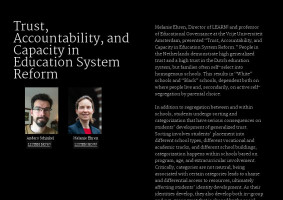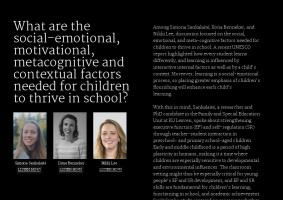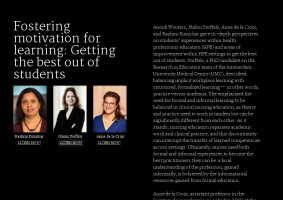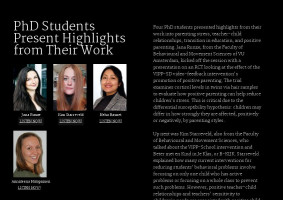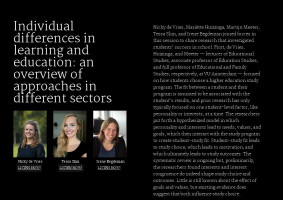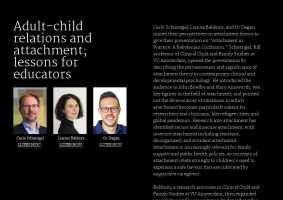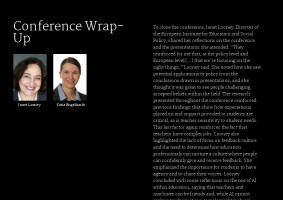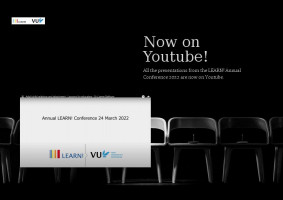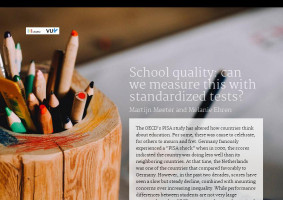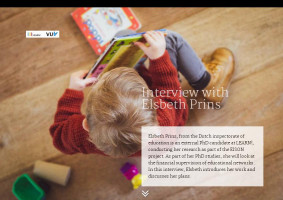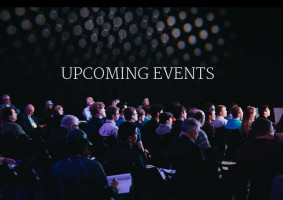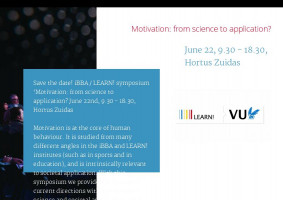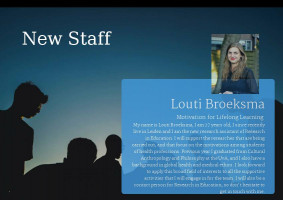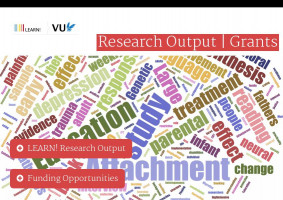Nicky de Vries, Mariëtte Huizinga, Martijn Meeter, Tessa Slim, and Irene Eegdeman joined forces in this session to share research that investigated students’ success in school. First, de Vries, Huizinga, and Meeter — lecturer of Educational Studies, associate professor of Education Studies, and full professor of Educational and Family Studies, respectively, at VU Amsterdam — focused on how students choose a higher education study program. The fit between a student and their program is assumed to be associated with the student’s results, and prior research has only typically focused on one student-level factor, like personality or interests, at a time. The researchers put forth a hypothesized model in which personality and interests lead to needs, values, and goals, which then interact with the study program to create student-study fit. Student-study fit leads to study choice, which leads to motivation, and which ultimately leads to study outcomes. The systematic review is ongoing but, preliminarily, the researchers found interests and interest congruence do indeed shape study choice and outcomes. Little is still known about the effect of goals and values, but existing evidence does suggest that both influence study choice.
Slim, PhD candidate in Educational Studies at VU Amsterdam, spoke about elementary school students’ differences during inquiry- and design-based learning in science and technology education. In this mode of learning, students experiment, draw conclusions, and design solutions for the problems they see, but little is known about how students’ individual differences can lead to children struggling or succeeding in this environment. Slim’s research followed students as they crafted musical instruments and ultimately noted three categories of student: the average student, the “successful science enthusiast,” and the “struggling science enthusiast,” the last of which shows much potential despite their struggles. The most positive experiences students had during this mode of learning were the autonomy, the hands-on involvement, and the collaboration. The Q&A session spurred further conversation about exploratory behaviors in children and how inquiry- and design-based learning activities can stimulate different challenges and interests: for example, in Slim’s research, how some students enjoyed the handicrafts element of creating an instrument while others preferred the physics of making a string produce sound when plucked.
Eegdeman, PhD candidate at VU Amsterdam and teacher at MBO school ROC TOP Sportacademie Amsterdam, presented her work on whether computers or teachers can best predict dropout. By being able to predict student dropout, teachers and administrators can intervene and provide support; however, schools typically do not have the resources to help everybody who may drop out, hence the need for accurate predictions. Teachers at ROC TOP not only feel confident in their predictions of who will and won’t drop out, but research found that teachers are better at making those predictions at the start of the year than the machine learning model. After period 1, the teachers and the model were almost equal in their prediction accuracy — which suggests that teachers and computers could work together to predict dropout better. During the Q&A session following Eegdeman’s presentation, one audience member wondered if the teachers who expect certain students to drop out contribute to a self-fulfilling prophecy that leads to these students quitting the program. Eegdeman reassured the audience that, based on past studies into this topic, the effects of an individual teacher contributing to a student dropping out is ultimately low.
_w200_h280_1.jpg)
_w200_h280_1.jpg)
Listen now!
Listen now!
_w200_h280_1.gif)
Listen now!
